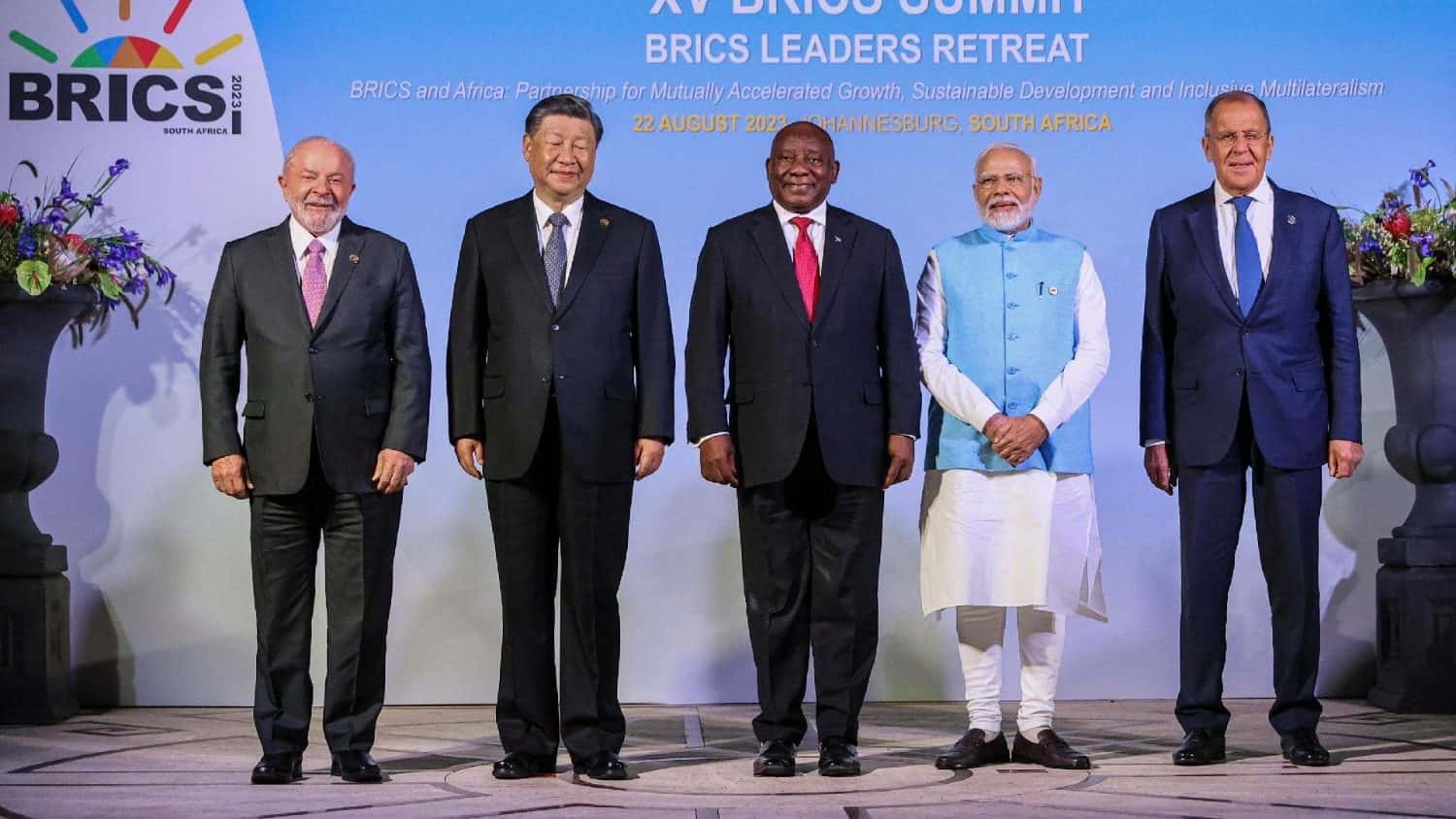The Brics summit opened with Putin in a video conference announcing the end of the dollar era. XI Jinping sought to reassure on the resilience of the Chinese economy and at the same time called for a path of dialogue to end the war in Ukraine. In the meantime, however, in Washington Sullivan presented the opposite model, the one wanted by Biden at G20, for the revival of the South

The summit of the notorious Brics quintet – Brazil, Russia, India, China, South Africa – which represents a quarter of the global economy and 42% of the world’s population, has begun in the South African city of Johannesburg. The objective that seems obvious is that Beijing and Moscow intend to turn the Brics into the geopolitical rival of the G7, thus creating a bloc antagonistic to that of the Western countries and especially the US. What we have witnessed in the past few hours, therefore, is nothing other than a real challenge to world hegemony.
The summit opened with Russian President Vladimir Putin broadcasting from Moscow, announcing the end of the dollar era. Putin, who did not travel to South Africa in order not to be arrested for war crimes committed in Ukraine, began by stating that ‘the irresponsible behaviour of some countries causes inflation while illegitimate sanctions trample all over the norms of free trade’. He then added that ‘a balanced and irreversible process of de-dollarisation of our economic ties is taking hold’. Then, as usual, Putin’s speech resulted in an attack on Western countries, their economic policies and sanctions.
Putin then went on to say that he will return to the agreement for the export of wheat to the Black Sea ports, provided Moscow’s conditions are met, starting with the removal of obstacles to its grain and fertiliser exports. Russia is not to blame for the food crises in the world, Putin insisted, denouncing among other things that only 3% of the wheat exported thanks to the agreement went to the neediest countries. And as a sign of goodwill, he announced that Moscow would supply thousands of tonnes of grain to six African countries free of charge. This is a signal to the South of the world, towards which Russia intends to continue to present itself as an alternative to the Western countries whose neo-colonial policies it denounces, because it actually realises that on the one hand it is courting the South of the world, but on the other hand by preventing grain exports it is exacerbating the food crisis.
Xi Jinping, on the other hand, was keen to stress that Beijing’s economy ‘has strong resilience, great potential and is full of vigour’. Meeting South African Ramaphosa reiterated that the two countries urge dialogue and negotiation as the only possible way out of the invasion of Ukraine.
In the meantime, however, in Washington, National Security Advisor Sullivan presented US President Joe Biden’s model for revitalising poorer countries. Sullivan announced that one of Biden’s goals at the G20 is ‘to accelerate reform of the World Bank and International Monetary Fund to meet the needs of the global south’. The White House will provide $50 billion in funding, which with contributions from other G20 members is expected to rise to $200 billion.
Sullivan explicitly spoke of an alternative system to China, a system that would be ‘effective and transparent, with higher standards than those of Beijing’s Belt & Road Initiative’, which, however, is currently difficult to implement given the financial problems that are afflicting the Asian giant’s economy. Sullivan went on to emphasise that the US does not see ‘the Brics as geopolitical rivals, because they are a collection of very different countries. Brazil, India and South Africa are democracies, Russia and China are autocracies. They have different economic models, and different visions in foreign policy, from Ukraine to the Indo-Pacific region’. Therefore, the US is ready to work individually with individual countries in an attempt to thwart the expansionist intentions of Beijing and Moscow.
(Associated Medias)- All rights reserved
